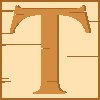 innegans
innegans
 ake
ake
 xtensible
xtensible
 lucidation
lucidation
 reasury
reasury
 innegans
innegans
 ake
ake
 xtensible
xtensible
 lucidation
lucidation
 reasury
reasury
Hello, my name is Raphael Slepon and I will be your guide to this site,
dedicated to James Joyce's Finnegans Wake. The next tour is just
about to start, so why don't you join in. You may be thinking that you
don't need no silly guided tours, what with you being such a seasoned
web surfer, thank you very much. Tip. You may be thinking that
you can march off right into the
search engine page, which, let us be
frank, is what you are after, and figure it out all by yourself. Tip.
Well, maybe you can, but it's way more likely that you'll just get lost
in its multitude of options and end up all bitter and frustrated. So
why don't you reconsider? Please, pretty please...
Let me welcome you to the site. The tour will take about 15 to 20 minutes to complete in its entirety. Please walk this way; mind your hats going in. Actually, we should really start right here, in the foyer, to figure out what this site is all about and what's with the weird name anyhow.
This site houses a collection of 101,514 notes on James Joyce's last work, Finnegans Wake, gathered from numerous sources (all listed on the bibliography page). It also houses a search engine to allow you to search the entire collection of notes. To better understand this site we should really look no further than the bizarre title of this page, examining it word by word:
Excuse me? Yes, ma'am, yes. I will, yes. I was just getting to that. As this lady in the back row has just pointed out, there is a weird little button on the corner of the page, bearing the ominous words "Comment on Me!". We will get to it in a minute, ma'am. Thank you.
Please don't wander off to the "Comment on Me!" page just yet, we will come to it along the path of this tour.
Sorry? Yes, sir, yes. I will, yes. I am often asked how to pronounce the name of this site. Well, it's pronounced just like sweet, but with an ever so slight – well, perhaps not slight – with an ever so noticeable lisp (which the OED tells us is "that defect of utterance which consists in substituting for s and z sounds approaching þ and ð; either by reason of a defect in the organs of speech or as an affectation"). You may wonder why it starts with an F, then. A quotation from The Annals of the Six Masters may clarify this point: "My name is spelt 'Luxury Yacht' but it's pronounced 'Throatwobbler Mangrove'" – then again it may not. With this tantalising piece of useless information, perhaps we should move on.
We are now faced with two doors. Through the right door, you may later (by which I probably mean "not now") want to visit the "Map" room, which houses links to all the pages on this site and which is in turn accessible from all those pages. But we will, instead, continue our tour by taking the left door, moving on to the "Search Engine" room, easily identifiable by its noisy din.
If you are reading this sentence, you have probably forgotten to click on the link saying "Search Engine" in the previous paragraph; please do! Tip!
![]() [Site Map]
Site Last Updated: Dec 4 2025
[Site Map]
Site Last Updated: Dec 4 2025